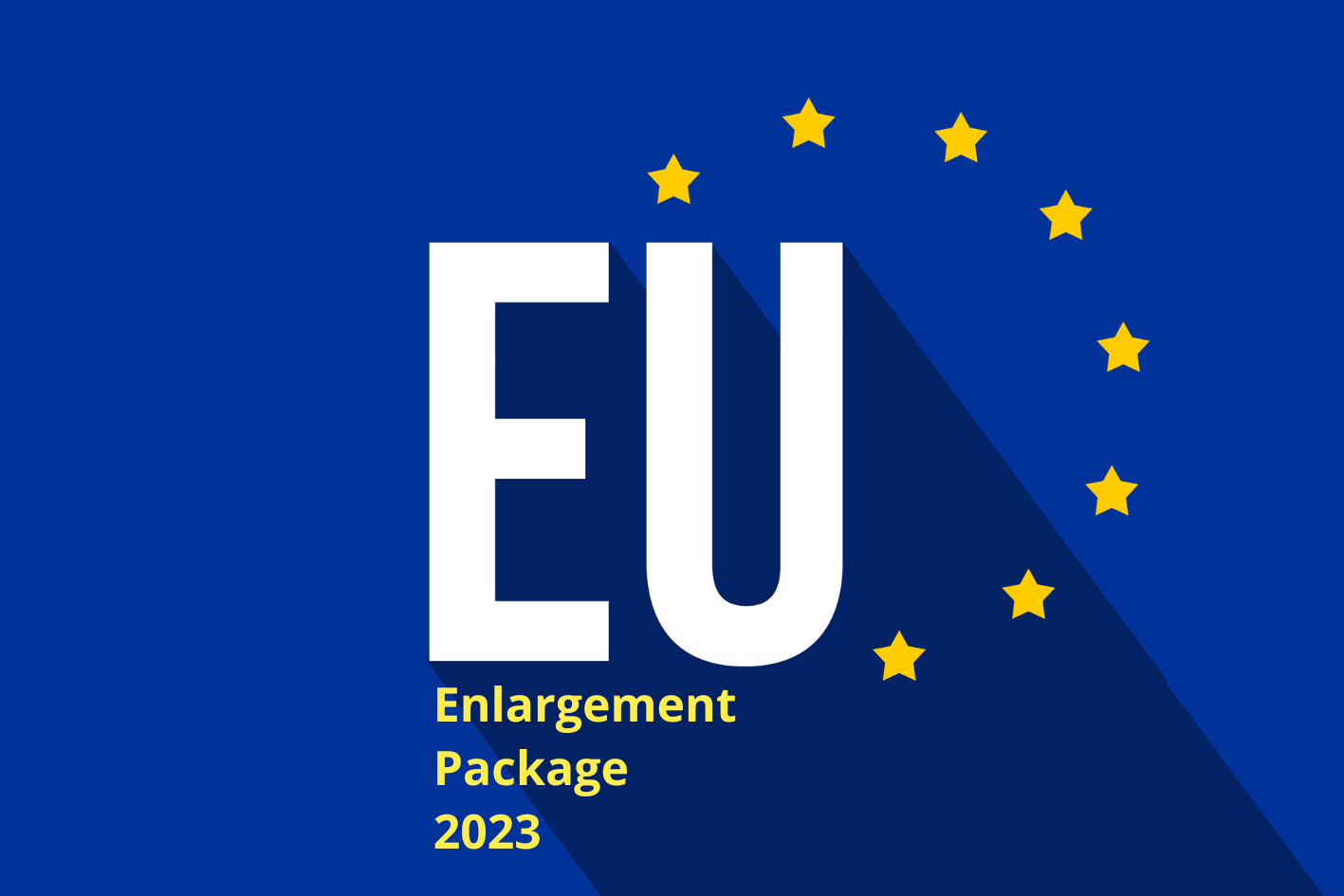The European Commission adopted the 2023 Enlargement Package, providing a detailed assessment of the state of play and the progress made by Albania, Bosnia and Herzegovina, Kosovo, Montenegro, North Macedonia, Serbia, Türkiye, and for the first time also Ukraine, the Republic of Moldova and Georgia on their respective paths towards EU accession.
The report focuses on the progress in the implementation of fundamental reforms, as well as on providing clear guidance on the reform priorities ahead. In light of the results achieved by Ukraine and Moldova, the Commission has recommended that the Council opens accession negotiations with both countries. Furthermore, the Commission recommends that Council adopts the negotiating frameworks once Ukraine and Moldova have adopted certain key measures.
In the case of Georgia, in light of the results achieved, the Commission recommends that the Council grants Georgia the status of a candidate country on the understanding that a number of steps are taken.
When it comes to Bosnia and Herzegovina, the Commission recommends the opening of accession negotiations with Bosnia and Herzegovina once the necessary degree of compliance with the membership criteria is achieved. The country needs to apply further efforts to fulfil the key priorities set out in the Commission Opinion on its EU membership application.
European Commission President, Ursula von der Leyen, said: “Enlargement is a vital policy for the European Union. Completing our Union is the call of history, the natural horizon of our Union. Completing our Union, also has a strong economic and geopolitical logic. Past enlargements have shown the enormous benefits both for the accession countries and the EU. We all win.”
In Ukraine, the decision to grant EU candidate status created a powerful reform dynamic, despite the ongoing war, with strong support from the people of Ukraine. The Ukrainian government and Parliament demonstrated resolve in making substantial progress on meeting the 7 steps of the European Commission Opinion on Ukraine’s EU membership application.
Moldova has made important progress on meeting the 9 steps set out in the Commission Opinion on Moldova’s EU membership application. It launched a comprehensive justice reform following the Venice Commission recommendations, including by evaluating prominent judges and prosecutors. The country also reformed its anti-corruption bodies and increased the number of investigations and convictions in corruption cases.
Georgia has taken steps to strengthen engagement with the EU and increased pace of reforms in the recent months. To address the twelve priorities identified in the Commission Opinion on its membership application, Georgia has adopted legislative acts and policy actions on gender equality, on fighting violence against women and organised crime, as well as on taking into account European Court of Human Rights judgments.
As Montenegro has suffered from deep polarisation and political instability in the reporting period, progress on EU accession reforms has largely stalled. The EU welcomes the constitution of the new parliament and the formation of the government, expected to swiftly demonstrate its capacity and commitment to Montenegro’s EU path and deliver on EU accession related reforms.
Serbia continued the implementation of EU accession related reforms, including in the area of rule of law. Serbia started implementing the 2022 constitutional amendments to strengthen the independence of the judiciary and adopted new media legislation. The implementation of the latter can significantly improve the regulatory environment. However, further amendments will be needed to be fully in line with the EU acquis and European standards.
In North Macedonia, the authorities have consistently stated that EU accession remains their strategic goal. North Macedonia has continued to fully align with the EU Common Foreign and Security Policy (CFSP). The country has also made some progress in in the area of justice, freedom and security, including the fight against organised crime and the management of migration.
Albania continued to demonstrate its determination to implement EU reforms and to make progress in reforms under the “fundamentals cluster”. Continued full alignment with EU’s CFSP was also a strong signal of the country’s strategic choice of EU accession. Further efforts are needed on freedom of expression, minority issues and property rights, as well as in key areas of the rule of law, such as the fight against corruption and organised crime.
In Bosnia and Herzegovina, last year’s candidate status brought a much-needed positive dynamic. A new government has been set up swiftly after elections and has started to deliver on reforms, specifically through the amendments introducing integrity checks in the judiciary. Yet, further efforts are needed.
Kosovo remained committed to its European path. It continued to voluntarily fully align with the EU’s CFSP, including on condemnation of Russia’s war of aggression against Ukraine and to adopt restrictive measures against it. The reporting period witnessed legislative achievements, including an important electoral reform. However, more work needs to be done, including on the action plan on justice reforms.
Türkiye remains a key partner for the European Union and a candidate country, but accession negotiations remain at a standstill since 2018, in line with the decision of the European Council. The country has not reversed the negative trend of moving away from the European Union, and it pursued accession related reforms to a limited degree.
